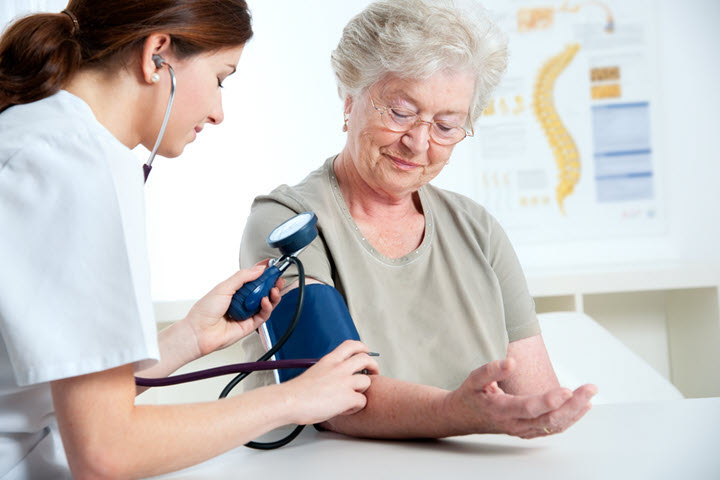One of the most important things you can do for your overall health is to keep your blood pressure (hypertension) under control. Below 120/85 should be the goal for a healthy person’s blood pressure reading and lower if you have a medical condition like diabetes or kidney disease. Changing your lifestyle is critical if you’ve been diagnosed with high blood pressure. If that doesn’t work, your health care provider can prescribe medication to keep it under control.
The lifestyle changes you should make are changing to an appropriate diet plan and getting moderate exercise each day. Here are some specific lifestyle changes that you can make immediately to lower your blood pressure:
- Reduce salt and sodium – Sodium is a major factor that could significantly raise your blood pressure, and it’s virtually hidden in many of the foods we eat today, such as soups and frozen dinners. Be sure to read the labels of canned or frozen products you purchase and limit your sodium intake to 1500 mg per day.
- DASH (Dietary Approaches to Stop Hypertension) diet – This diet was formulated specifically for people who suffer from high blood pressure and includes a diet of vegetables, fruits, low-fat dairy products and whole grains. You should also get plenty of potassium and reduce your intake of saturated fats.
- Smoking and alcohol – Tobacco causes hardening of the arteries and alcohol may raise your blood pressure. If you smoke, consult your doctor about a plan to quit, and limit your alcohol intake to one or two drinks per day.
- Lose weight – Even if you’re slightly overweight, losing unwanted pounds may help to lower your blood pressure.
- Stress – Too much stress in your life is a major concern if you have high blood pressure. Exercise sometimes help reduce stress as does relaxation and deep breathing techniques, so strive for at least a half hour of physical activity per day and get plenty of sleep.
Lifestyle changes can certainly help keep your blood pressure under control, but they may not be enough. If your blood pressure remains higher than your doctor thinks it should be, they may prescribe a medication to control it.
Diuretics, or water pills, are usually prescribed for high blood pressure. They help your kidneys flush out the sodium and water in your system and reduce blood volume. Diuretics may also reduce your chances of having a stroke or heart failure, especially if you’re 80 or older.
Beta-blockers are also effective in reducing blood pressure. They serve to open blood vessels so that your heart doesn’t have to work as hard. Other medications such as enzyme inhibitors, receptor blockers, and channel blockers may also help lower blood pressure.
Your doctor may prescribe a combination of drugs to reduce your blood pressure more effectively. After the high blood pressure is under control, your health care provider may suggest that you take aspirin daily to lessen the risk of cardiovascular problems.
You may want to look into natural remedies for high blood pressure. There are some very effective natural solutions, and they don’t have the dangerous side effects prescription drugs often have.

